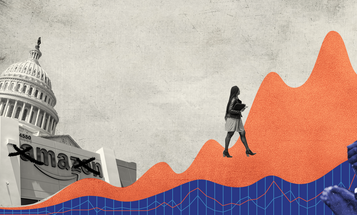
STATEMENT: Bank Regulators Move to Rein In Unfair Credit Card Lending Practices
Demos Calls for Swifter Action As Issuers Continue to Slash Credit Limits and Ratchet Up Interest Rates and Fees
Washington, DC — Federal regulators approved a final rule today to curb certain credit card lending practices that thousands of American consumers have decried as unfair and abusive. The Federal Reserve, Office of Thrift Supervision and National Credit Union Administration jointly proposed the new rule in May, under their authority to prohibit unfair or deceptive acts or practices.
This is the first time the agencies have exercised their powers to ban specific credit card practices, and the process has garnered unprecedented attention from the American public. The proposed regulations drew over 65,000 comments, the vast majority of which were in support of the stronger protections for borrowers.
“Over the past two decades, deregulation in the credit card market has allowed credit card companies to stack the deck against consumers,” said Tamara Draut, Vice President of Policy and Programs at Demos. “Our regulators have heard the public outcry and issued a strong and fair rule that will undo much of the imbalance that holds million of American families trapped in a cycle of debt. The one great misstep in the decision to issue these new regulations is the long delay in implementation. The rule wouldn’t take effect until up to 18 months from now, which is 18 months too long, especially while we’re in the middle of the greatest fiscal crisis in generations.”
Demos research shows that inequitable credit card underwriting practices have shifted the cost of credit to individuals least able to afford it, while at the same time generating some of the highest profits in the entire banking sector. Low-income families and households of color, primarily African Americans and Latinos, bear the brunt of the cost of credit card deregulation through excessive fees and high interest rates.
The rules issued today will ban some of the most egregious bait-and-switch tactics in credit card lending. The new rules will:
- prohibit banks from retroactively increasing the interest rate their customers must pay on existing balances (except under limited circumstances)
- prohibit banks from allocating payments to lower-rate balances first to maximize finance charges
- ban the practice of “double-cycle billing,” which calculates interest over more than one month, and can result in higher finance charges
- eliminate upfront fees on so-called fee harvesting credit cards when they eat up the majority of the available balance on the cards
- require banks to provide consumers a reasonable amount of time to make payments.
As the current financial crisis worsens, financial institutions have been slashing credit limits and raising interest rates and fees on credit card accounts to recuperate losses in mortgage lending and other weakened sectors. These tactics are causing more borrowers to carry higher balances for longer periods of time and run the risk of exceeding the limit and incurring penalty rates and fees.
“The only reason credit card lenders are able to change the terms of their lending agreements midstream — often in no way connected to negative behavior on the part of the borrower — is because the credit card market lacks any sensible regulation providing for basic consumer protection,” said Draut. “Banks are just trying to balance their losses from shoddy subprime lending on the backs of their credit card customers. American families need these protections now, and we call on Congress to move swiftly to codify the provisions of the rule and implement them as soon as reasonably possible.”
###



